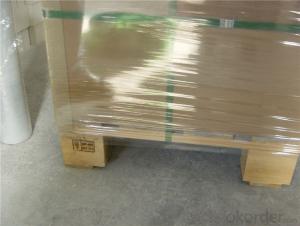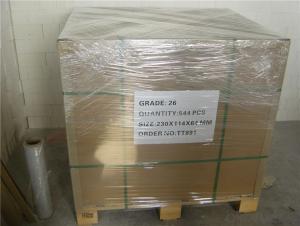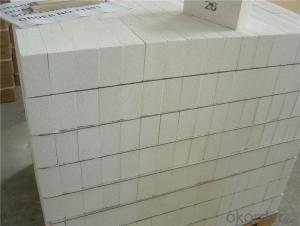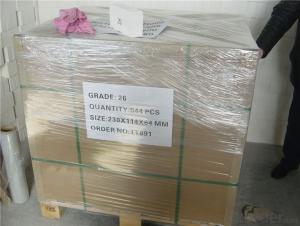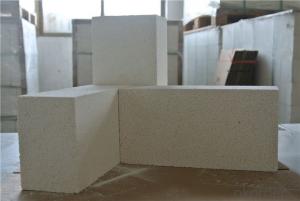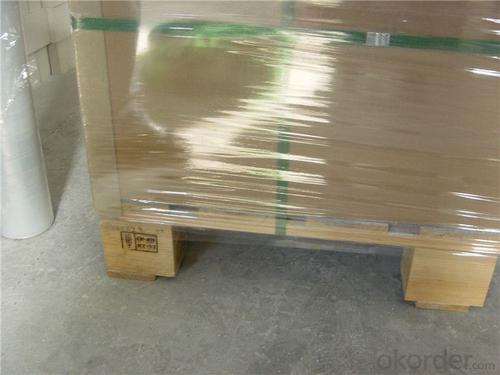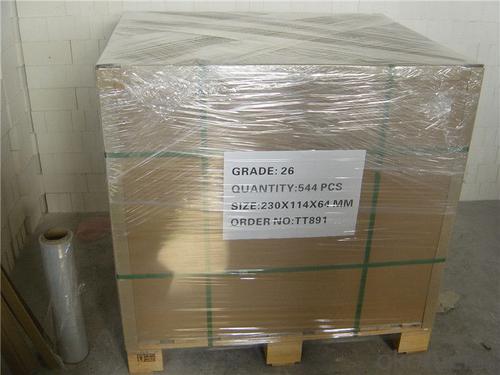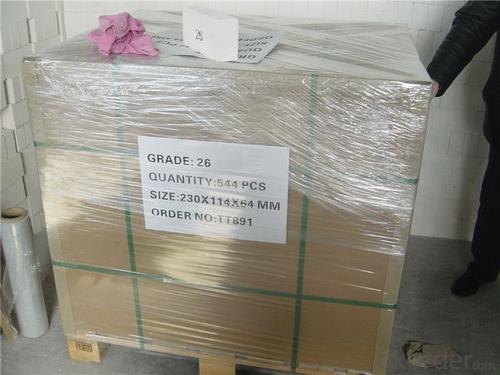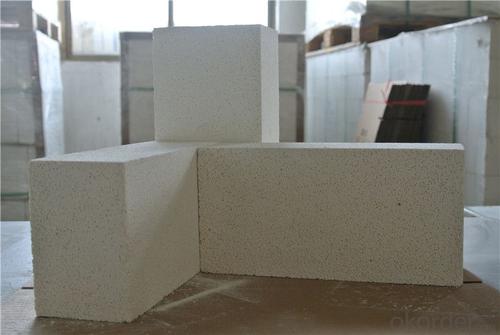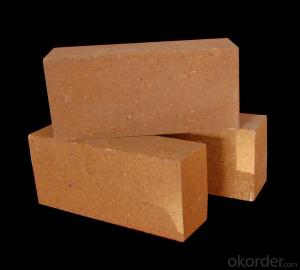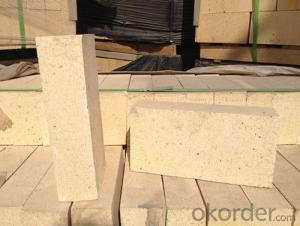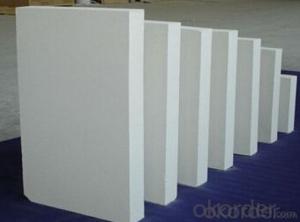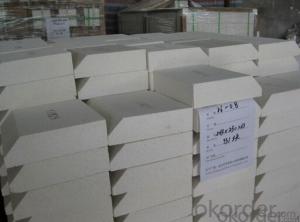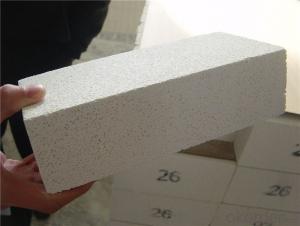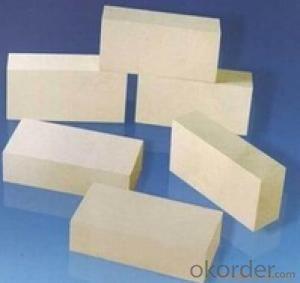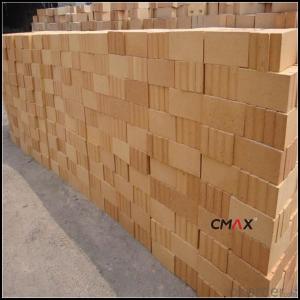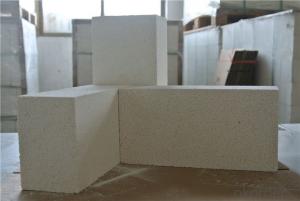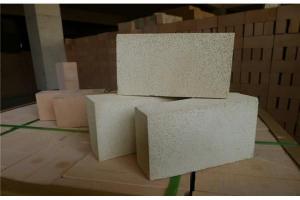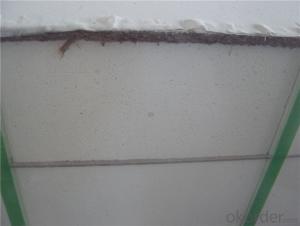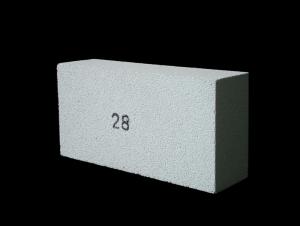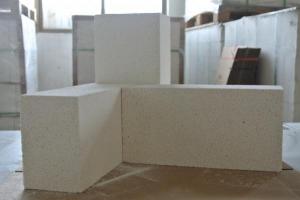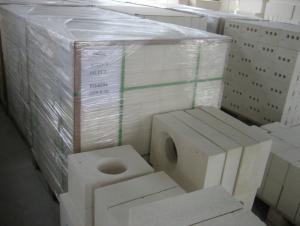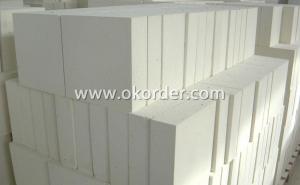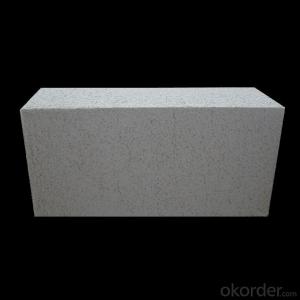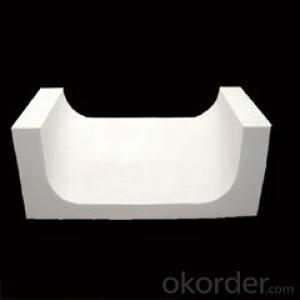Insulating Fire Brick - Lightweight Fire Brick Clay Brick Insulation Brick
- Loading Port:
- Shanghai
- Payment Terms:
- TT OR LC
- Min Order Qty:
- 1 m.t.
- Supply Capability:
- 1000 m.t./month
OKorder Service Pledge
OKorder Financial Service
You Might Also Like
Thermal Insulation Fire Clay Brick
Refractory brick is a block of refractory ceramic material used in lining furnaces, kilns, fireboxes, and fireplaces.
We provide high quality Refractory Fire Bricks that are used on wide range in the various industries like Cement, Glass and Steel. Refractory Fire Bricks are provided as per the quantity and specifications required by the customers. We provide an extensive range of Refractory Fire Bricks at reasonable prices that depend upon the quantity ordered.
Application
Insulating Fire Brick are used for the lining of converter, alternating current arc furnace, direct Current arc furnace and the ladle slag line, etc.
Company Advantage
(1)Long Insulating Fire Brick manufacture history: 25 years manufacturer
(2)Advanced equipment
(3)Diversification of production standards: ISO ANSI FEPA JIS ASTM
(4)Flexible payment: T/T L/C D/P D/A
(5)Professional marketing team and after-sale service
Insulating Fire Brick main feature:
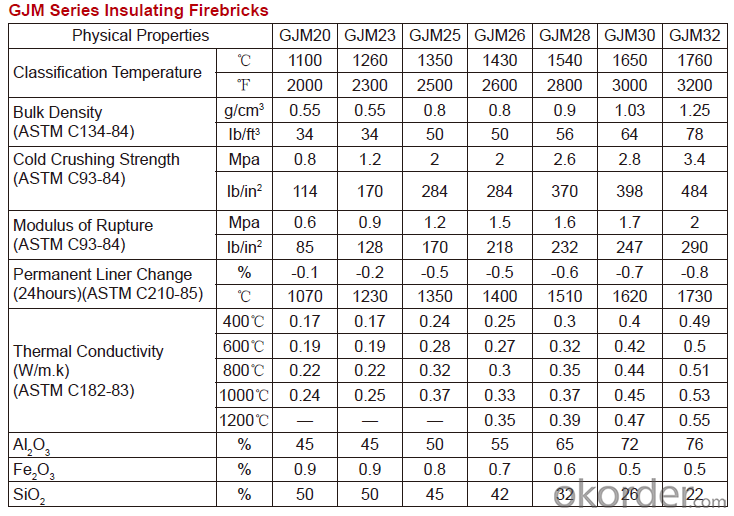
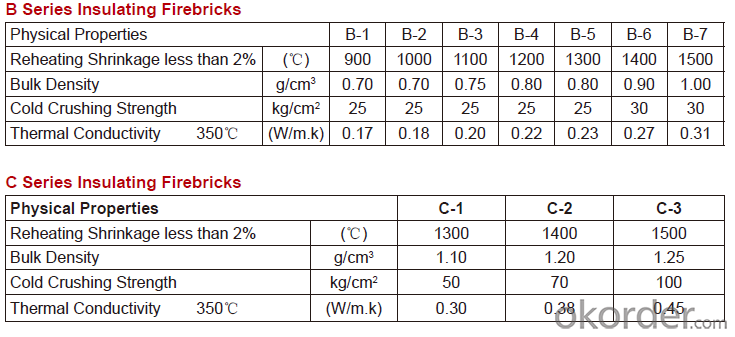
Equipment
1 unit of Ceramic Abrasive (SG Abrasive) pilot production line
2 units of Compact grain Abrasive pilot production lines
1 unit of high-end coated abrasives (abrasive cloth) production line
2 units of Boron Carbide production lines
3 large flexible crushing and sieving lines for grit production lines
6 units of 5000KVA-10000KVA dumping type electric arc furnaces for Brown Fused Alumina fusion
Q1 What’s the transport method?
A1 FCL delivery goods with wooden pallet or wooden case by sea; If LCL delivery, must with wooden case; Sometimes need open top, flat rack or bulk cargo.
Q2 What’s the required payment term?
A2 Generally 30% TT as the prepayment, 70% TT before delivery. If need, 100% Irrevocable Letter of Credit or negotiation.
Q3 Which country are our products exported to?
A3 Apart from entire Chinese market, the US, Russia, Japan, Korea, Australia and some Southeast Asian Nations.
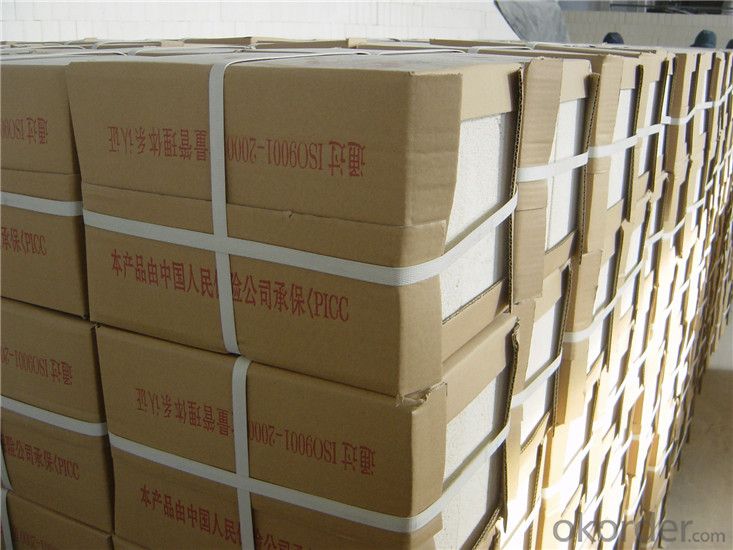
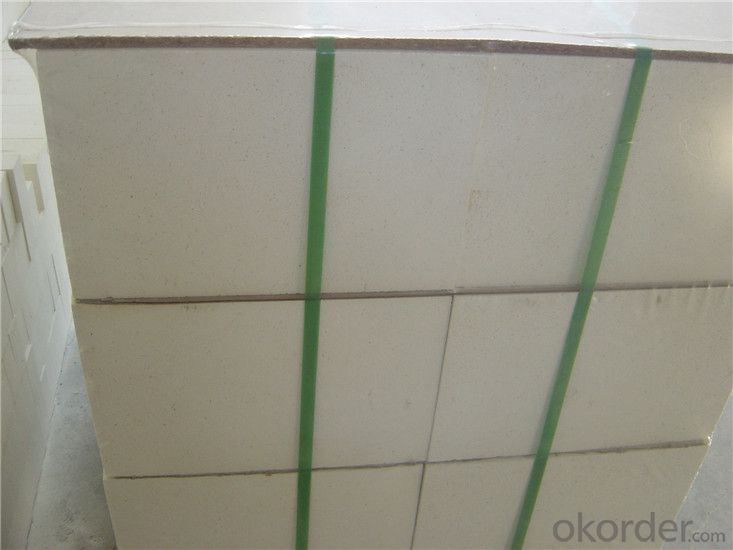
- Q: Do insulating fire bricks require any special fireproof gaskets or seals?
- No, insulating fire bricks do not require any special fireproof gaskets or seals. They are designed to provide excellent insulation and can be stacked or mortared together without the need for additional seals or gaskets.
- Q: Is it possible to recycle broken insulating fire bricks?
- Yes, it is possible to recycle broken insulating fire bricks. Insulating fire bricks are commonly made from materials such as clay and alumina, which can be recycled. The broken bricks can be crushed into small particles or ground into a fine powder, and then mixed with other materials to create new bricks or other construction materials. Additionally, some recycling facilities may accept broken insulating fire bricks and process them for reuse in other industries. Recycling broken insulating fire bricks helps to reduce waste, conserve resources, and minimize the environmental impact associated with manufacturing new bricks from scratch.
- Q: Can insulating fire bricks be used for insulation in power boiler walls?
- Certainly! The application of insulating fire bricks for insulation in power boiler walls is possible. These bricks are specifically engineered to possess a low thermal conductivity, thereby enabling them to efficiently insulate power boilers operating at high temperatures. Constructed from lightweight materials like clay and other refractory substances, these bricks exhibit exceptional insulation characteristics while enduring the extreme heat encountered in power boilers. By integrating insulating fire bricks into power boiler walls, heat loss can be minimized, energy efficiency can be enhanced, and the boiler can sustain optimal operating temperatures.
- Q: What is the recommended curing time for insulating fire bricks?
- The recommended curing time for insulating fire bricks varies depending on the manufacturer and specific product. It is typically recommended to follow the curing instructions provided by the manufacturer, which can range from a few hours to several days.
- Q: Are insulating fire bricks suitable for insulation in refinery heaters?
- Yes, insulating fire bricks are suitable for insulation in refinery heaters. Refinery heaters operate at extremely high temperatures, and insulating fire bricks are designed to withstand these temperatures and provide effective insulation. These bricks have low thermal conductivity, which means they can prevent heat from escaping the heater, thus reducing energy loss and increasing the overall efficiency of the heater. Additionally, insulating fire bricks have excellent thermal shock resistance, meaning they can withstand rapid temperature changes without cracking or breaking. This is crucial in refinery heaters, as they often experience frequent temperature fluctuations during operation. Furthermore, insulating fire bricks are lightweight and easy to install, making them a convenient choice for insulation in refinery heaters. Overall, insulating fire bricks are a suitable and effective option for insulation in refinery heaters.
- Q: Are insulating fire bricks suitable for use in high-temperature chimneys?
- Yes, insulating fire bricks are suitable for use in high-temperature chimneys. These bricks are specifically designed to withstand extreme temperatures and provide excellent insulation properties. They have a high melting point and low thermal conductivity, which allows them to effectively retain heat and prevent it from escaping through the chimney walls. This helps in maintaining a high temperature inside the chimney, which is crucial for efficient combustion and proper functioning of the chimney. Additionally, insulating fire bricks are lightweight and durable, making them an ideal choice for constructing chimneys that are exposed to high temperatures.
- Q: The insulation layer destroyed after use of cement paste and tiling
- The most certain and the method can increase the area of the balcony is to eradicate the insulation layer exposed after cement wall tiles.
- Q: Can insulating fire bricks be used in industrial furnaces?
- Industrial furnaces can indeed utilize insulating fire bricks. These bricks are engineered to endure high temperatures and possess exceptional insulation properties. They are fabricated from lightweight refractory materials like alumina, silica, or mullite, all of which have low thermal conductivity. This enables them to effectively retain heat within the furnace, thereby decreasing heat loss and enhancing energy efficiency. In the context of industrial furnaces, where elevated temperatures are necessary for various processes such as metal melting, glass production, or ceramic manufacturing, insulating fire bricks can be employed to line the furnace's internal walls and floor. Their insulation capabilities aid in maintaining a consistent temperature inside the furnace, guaranteeing optimal conditions for the industrial procedure. Another advantage of insulating fire bricks is their lightweight nature, which simplifies handling and installation when compared to conventional dense fire bricks. This streamlined process can save time and reduce labor expenses during the construction or repair of industrial furnaces. However, it is important to note that the specific type and composition of insulating fire bricks should be chosen with care, taking into account the operating temperature and requirements of the industrial furnace. Different types of insulating fire bricks possess varying temperature limits and resistance to thermal shock. Therefore, it is advisable to consult with a professional or refractory expert to ensure the appropriate selection and installation of insulating fire bricks in industrial furnaces.
- Q: Can insulating fire bricks be used in refractory cement?
- Yes, insulating fire bricks can be used in refractory cement. Insulating fire bricks are specifically designed to withstand high temperatures and provide excellent insulation, while refractory cement is used to bind and seal refractory materials. By using insulating fire bricks in refractory cement, it can enhance the overall insulation properties and improve the performance of the cement in high-temperature applications.
- Q: Are insulating fire bricks resistant to sulfates?
- Yes, insulating fire bricks are generally resistant to sulfates. They are designed to withstand high temperatures and are made from materials such as alumina and silica, which are known to have good chemical resistance. However, it is recommended to check the specific product specifications or consult with the manufacturer to ensure their suitability for sulfates in your specific application.
Send your message to us
Insulating Fire Brick - Lightweight Fire Brick Clay Brick Insulation Brick
- Loading Port:
- Shanghai
- Payment Terms:
- TT OR LC
- Min Order Qty:
- 1 m.t.
- Supply Capability:
- 1000 m.t./month
OKorder Service Pledge
OKorder Financial Service
Similar products
Hot products
Hot Searches
Related keywords
